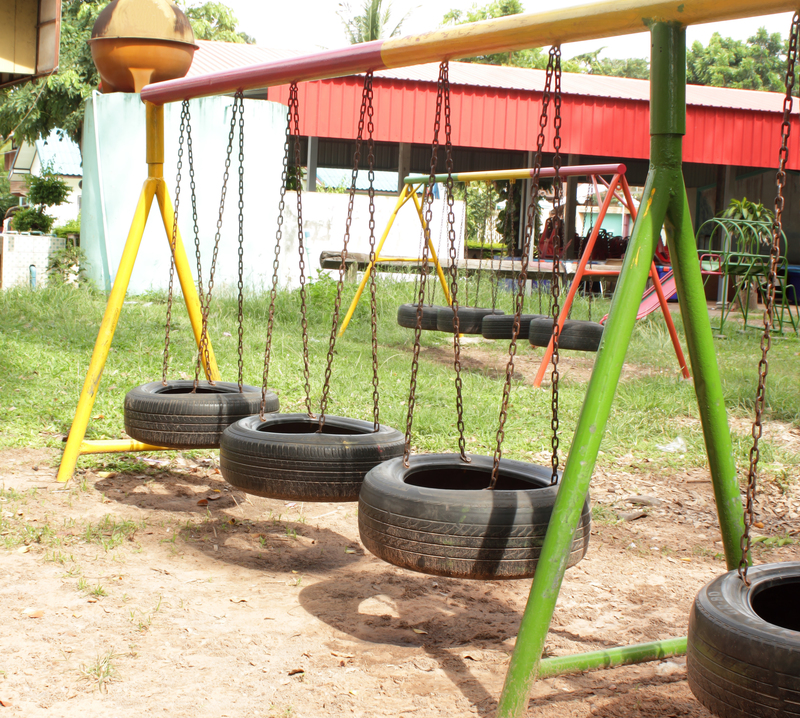Serenity Found: The Journey to Minimalist Living by Decluttering
Minimalist living holds an undeniable allure for many modern individuals who feel overwhelmed by the demands of daily life and the burden of excess belongings. Decluttering is a crucial first step on the path to minimalist serenity, offering both practical and psychological benefits. In this extensive guide, we'll explore how letting go of unnecessary items leads to a clearer home, a clearer mind, and a richer life. If you've been seeking tranquility, improved productivity, and a renewed sense of purpose, the minimalist journey through decluttering could be the transformation you need.
Understanding Minimalist Living: More Than Just a Trend
Minimalism is not just about having fewer things. At its core, it is the intentional promotion of the things we value most and the removal of everything that distracts us from them. The journey to minimalist living requires a shift in mindset, focusing on quality over quantity and prioritizing what truly serves us.
The Philosophy Behind Minimalism
- Intentionality: Making deliberate choices about what we allow into our lives.
- Freedom: Liberating ourselves from physical and mental clutter.
- Focus: Channeling energy towards what matters most.
- Contentment: Finding happiness with less, not more.
The Rise in Minimalist Living
The popularity of documentaries, blogs, and books has increased awareness of minimalist living through decluttering. This movement encourages a departure from consumerism and fosters a culture of mindful ownership.

Decluttering: The Gateway to Minimalist Living
Decluttering is the hands-on, often emotional process of letting go of possessions that no longer serve us. When we undertake this process, we create room for serenity and clarity in our lives. This journey isn't about deprivation--it's about enrichment.
Why Decluttering Leads to Serenity
- Reduced Stress: Physical clutter is scientifically linked to increased cortisol levels and anxiety. A minimalist space cultivates calm.
- Reclaimed Time: Less cleaning, organizing, and searching means more time for what you love.
- Financial Benefits: Mindful consumption leads to savings and wiser investment in possessions that matter.
- Environmental Impact: Living with less reduces waste and promotes sustainability.
Steps to Begin Your Decluttering Journey
Embarking on the road to minimalist serenity can seem overwhelming. Here's a step-by-step approach to facilitate the process:
- Define Your Vision: What does minimalist living look like for you?
- Start Small: Tackle one area--a drawer, a shelf, a corner--before moving on.
- Sort Ruthlessly: Categorize items into Keep, Donate, Sell, or Discard.
- Ask Purposeful Questions: Is this useful? Does it spark joy? Do I need multiples?
- Organize What Remains: Arrange your chosen items for effortless accessibility and visual calm.
- Develop Lasting Habits: Make decluttering part of your routine to maintain minimalism.
Decluttering Strategies for Success
Every individual's path is unique, but these proven techniques aid the process:
- The Four-Box Method: Label four boxes as Keep, Give Away/Sell, Store, Trash. Touch each item, making an immediate decision.
- The KonMari Method: Made famous by Marie Kondo, this approach revolves around the central question: Does it spark joy?
- Room-by-Room Approach: Tackle spaces individually to avoid overwhelm and achieve tangible progress.
- One-In, One-Out Rule: Maintain minimalism by ensuring each new item replaces an old one.
Common Challenges in the Decluttering Process
- Sentimental Attachments: Decide if the memory or the object is truly necessary and consider digital keepsakes.
- Guilt Over Waste: Donate or recycle responsibly, and focus on mindful purchasing moving forward.
- Decision Fatigue: Take frequent breaks and celebrate small wins along your minimalist living journey.
Minimalist Living Room by Room
Minimalism isn't just a design style--it's a lifestyle that transforms every corner of your home. Here's how to approach each space with the art of decluttering for serenity and peace:
The Minimalist Kitchen
- Pare Down Appliances: Keep only what you use regularly, opting for multi-functional tools.
- Clear Countertops: Store items out of sight for a calming cooking space.
- Streamline Pantry: Use clear containers, discard expired goods, and group items by use.
The Minimalist Bedroom
- Edit Your Wardrobe: Choose versatile, high-quality pieces you love to wear.
- Limit Decor: Select soothing, minimal artwork and remove unnecessary trinkets.
- Tidy Nightstands: Keep only bedtime essentials for a restful environment.
The Minimalist Living Room
- Choose Functional Furniture: Opt for pieces with hidden storage and clean lines.
- Minimize Electronics: Tidy up cables and limit gadgets to necessities.
- Keep Surfaces Clean: Regularly clear coffee tables, shelves, and mantels for instant serenity.
The Minimalist Bathroom
- Limit Toiletries to Essentials: Discard expired or unused products to keep cabinets organized.
- Organize Linens: Purge old towels and keep only your favorites.
- Maximize Storage: Use containers and baskets to avoid cluttered counters.
Emotional and Psychological Benefits of Decluttering
The journey to minimalist living through decluttering has profound effects beyond just a tidy home. Here's how your mental well-being evolves along your path:
- Increased Focus and Productivity: Clear spaces foster clear thinking, boost creativity, and make your goals more attainable.
- Improved Mood: An organized environment reduces stress, increases satisfaction, and creates a greater sense of control.
- Mindfulness: Owning less encourages you to be fully present and appreciate each object's value and purpose.
- Self-Discovery: By choosing what to keep or discard, you better understand your values, needs, and aspirations.
Serenity Through Minimalism: Real-Life Stories
Jane, a graphic designer from Seattle, once struggled with work-life balance and constant disorganization. After adopting minimalist living by decluttering her home and office, she reports better focus, a peaceful home atmosphere, and newfound energy for her creative work.
Ben and Rachel, a young couple, downsized their possessions before moving abroad. They found that a simpler lifestyle freed up money and time for travel, personal growth, and deeper relationships, proving that serenity is found not in things, but in experiences.
Creating a Minimalist Mindset
True serenity through minimalism is achieved when decluttering becomes a mindset, not just an occasional task. Let's examine how to cultivate lasting habits that keep your life simple and your mind clear:
- Practice Gratitude: Appreciate the possessions you choose to keep and release what no longer serves you.
- Set Boundaries: Be mindful of new purchases and consider their long-term value.
- Regularly Reevaluate: Life changes--so should your belongings. Make seasonal decluttering a ritual.
- Enjoy the Freedom: Celebrate the lightness that comes from owning less and living more.
The Power of Saying No
Minimalist living by decluttering also empowers you to say no to commitments, habits, and relationships that drain your energy. The same principles for physical possessions can lead to greater mental resilience and better work-life balance.
Decluttering Digital Spaces for Minimalist Serenity
In the digital age, our devices can quickly become as cluttered as our homes. Minimalist living through digital decluttering enhances your focus and well-being by:
- Streamlining Inbox: Unsubscribe from unnecessary emails, create folders, and set boundaries on screen time.
- Organizing Files: Delete duplicates, archive old documents, and back up important data.
- Reducing App Overload: Eliminate unused apps to simplify device use and improve attention span.
The Long-Term Rewards of Minimalist Living
The process of decluttering for minimalist living offers a wide array of long-term benefits, including:
- Financial Freedom: Less spending leads to more savings.
- Environmental Stewardship: Fewer possessions mean less waste and a lighter ecological footprint.
- Enhanced Relationships: Simpler spaces allow you to focus on connecting with loved ones.
- Personal Growth: Minimalism leads to self-awareness, confidence, and a continually evolving life purpose.

Tips for Maintaining a Decluttered, Minimalist Lifestyle
- Adopt a "One In, One Out" Policy: Keep home clutter at bay by balancing acquisitions.
- Designate Clutter-Free Zones: Prioritize serenity in key areas like bedrooms and living spaces.
- Schedule Regular Decluttering Sessions: Monthly or seasonal reviews ensure ongoing simplicity.
- Limit Impulse Purchases: Practice mindful shopping and appreciate the sufficiency of what you already own.
- Focus on Experiences Over Things: Invest in memories and growth, not material possessions.
Conclusion: Embrace Serenity with Minimalism
Serenity found through minimalist living by decluttering is about more than getting rid of stuff--it's about transforming your relationship with your environment and yourself. Embrace the journey by letting go of the unnecessary, focusing on what matters, and enjoying the profound peace that comes with a simpler, more intentional life. Your home, mind, and heart will thank you for choosing clarity over chaos. Begin today, and discover the lasting joy of minimalist serenity.